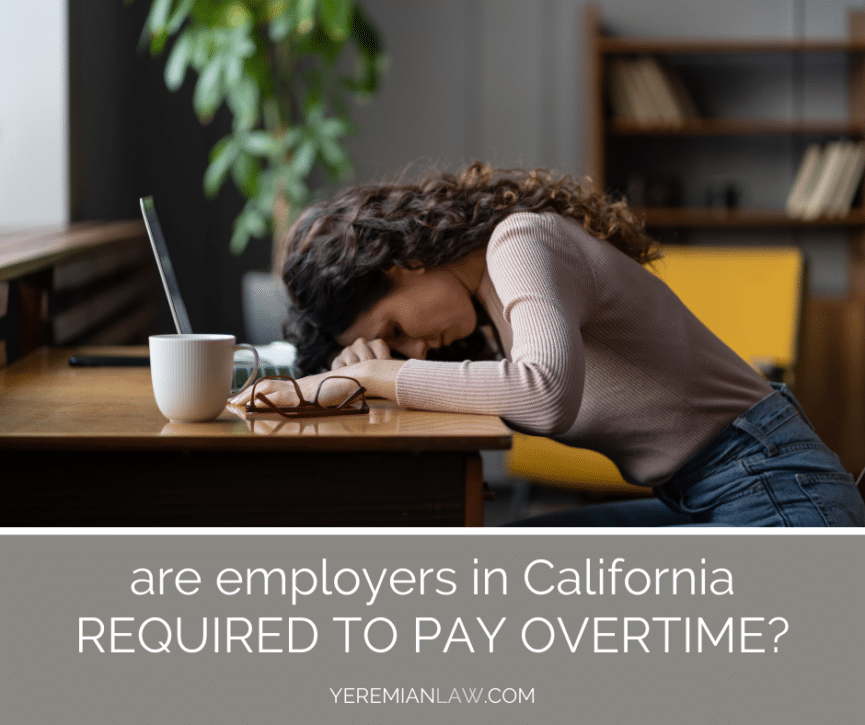Overtime is defined as any hours worked over 8 in a day or 40 in a week. California law requires that employees be paid 1.5 times their regular hourly wage for any overtime hours worked. Employers who violate this law can be subject to penalties, including back pay and damages. If your employer has violated overtime laws and failed to pay you overtime pay, you could be entitled to compensation.
Are Employers in California Required to Track Overtime Hours for Workers?
Employers in California are required to keep accurate records of all hours worked by their employees, including overtime hours. These records must be made available to employees upon request. If an employer does not have accurate records, they may still be liable for overtime violations.
Additionally, employers are required to pay you for every hour you work. There are no exceptions to that rule.
If an Employee Works Unauthorized Overtime, Does the Employer Still Have to Pay?
If an employee works unauthorized overtime, the employer may still be required to pay. However, the employer may be able to discipline the employee for violating company policy.
What Are Some Exceptions to the Overtime Rule in California?
There are a few exceptions to the overtime rule in California. Employees who are exempt from overtime include:
- Executive, administrative, and professional workers
- Commissioned salespeople and outside salespeople
- Certain computer software professionals
- Airline employees
Other exceptions may apply in certain cases. For example, some agricultural workers are exempt from overtime laws. If you’re not sure whether you are, you should consult an employment attorney.
Related: 7 common employment law issues in California
What Are California Overtime Rates Based On?
Overtime is based on an employee’s regular rate of pay. This is usually the hourly rate that the employee is paid, but it can also be based on salary, commission, or a piece rate. When an employee works overtime, they are entitled to 1.5 times their regular rate of pay for each overtime hour worked.
Do Bonuses Count as Part of the Regular Rate of Pay When it Comes to Calculating Overtime?
Bonuses can count as part of the regular rate of pay when it comes to calculating overtime. However, not all bonuses are included in the regular rate of pay. For example, production bonuses and piecework bonuses are typically excluded.
Related: Fair wages FAQ
Can California Employers Require Workers to Work Overtime?
Yes, employers in California can require workers to work overtime. However, they must pay employees 1.5 times their regular rate of pay for any overtime hours worked.
How Soon Do California Employers Have to Pay Workers for Overtime?
Employers in California must pay workers for overtime within seven days of the end of the workweek in which the overtime was earned.
Is it Possible for a California Worker to Waive Their Right to Overtime Pay?
No, it is not possible for a California worker to waive their right to overtime pay. Overtime laws are designed to protect workers, and employees cannot waive their rights under these laws.
Related: California overtime laws for hourly workers
Can You File a Wage Claim if Your Employer Fails to Pay You Overtime in California?
You can file a wage claim if your employer fails to pay you overtime in California. The Wage and Hour Division of the California Labor and Workforce Development Agency will investigate your claim and, if they find that your employer has violated the law, they may order your employer to pay you back wages and damages. You may also be able to file a private lawsuit against your employer.
What Should You Do If Your Employer Fails to Pay You Overtime in California?
If your employer fails to pay you overtime in California, you should first try to resolve the issue with your employer. If you are unable to reach a resolution, you can file a wage claim with the Wage and Hour Division of the California Labor and Workforce Development Agency or a private lawsuit against your employer.
Can Your Employer Retaliate Against You for Filing a Wage Claim?
It is illegal for your employer to retaliate against you for filing a claim. If your employer retaliates against you, you can file a complaint with the Equal Employment Opportunity Commission.
Do You Need to Talk to an Attorney About an Unpaid Overtime Issue?
If your employer has failed to pay you for overtime hours that you worked, we may be able to help you get the compensation you deserve. Call our office at 818-230-8380 or fill out the form below to schedule a free consultation with an experienced labor lawyer in Los Angeles and Glendale.




